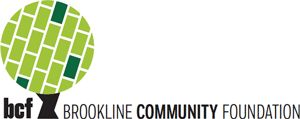Creating a named fund at BCF allows you as a donor to guide longterm giving to the causes and organizations that matter most to you, while at the same time having those funds professionally managed by BCF’s advisors. Please see our Create a fund page for further information.
A bequest gift is a charitable gift you designate to be made from your estate to leave a legacy on the causes you care about in the community.
Making a bequest gift has many benefits. No other planned gift is as simple to implement, or as easy to change should you need these assets during your lifetime. A bequest gift also provides you with continued access to your wealth and the flexibility to change your mind or adjust giving designations as you see it.
To arrange a bequest gift, we welcome you to work with our team to design and secure your philanthropic vision before working with your attorney or estate planner to incorporate formal bequest language into your estate plans.
Bequest gifts are good fits for donors who want to leave a lasting philanthropic legacy while also maintaining flexibility. Bequest gifts can be changed during your lifetime, provide you with continued access to your wealth, and provide the comfort of knowing your resources will continue to benefit your community for generations to come
According to Fidelity Charitable, “In general, there is an unlimited deduction of charitable bequests against the value of an estate, making it a powerful tool for reducing estate tax. It is possible for an estate to deduct bequests of not only cash, but also property such as real estate, stock, IRAs, autos, and other assets.”
For detailed information about what tax benefits or consequences making a bequest gift to BCF may provide, please consult your financial advisor, accountant, or estate planner.
If you would like to learn more about how your bequest to BCF can help you leave a lasting legacy in Brookline, please contact our team to begin that conversation.
If you are ready to make your bequest gift to BCF, please contact your attorney or estate planner to incorporate bequest language into your estate plans.
When you consult your attorney on the selection of appropriate wording to reflect your own goals and intentions regarding BCF, please be sure the organization’s correct legal name appears in all final documents as:
“Brookline Community Foundation, a Massachusetts nonprofit corporation, or its successor, Federal Tax Identification Number: 04-2103944.”
- A General Bequest of a stated sum of money may be worded:
“I give to Brookline Community Foundation, a Massachusetts nonprofit corporation, or its successor, Federal Tax Identification Number 04-2103944 [insert here the exact dollar amount].”
- A Specific Bequest of a certain asset from your estate may be worded:
“I give to Brookline Community Foundation, a Massachusetts nonprofit corporation, or its successor, Federal Tax Identification Number 04-2103944, [insert here a description of the particular property].”
- A Residuary Bequest, after other bequests and expenses have been paid, may be worded:
“I give to Brookline Community Foundation, a Massachusetts nonprofit corporation, or its successor, Federal Tax Identification Number 04-2103944, all [or a portion] of the rest, residue and remainder of my estate.”
- A Contingent Bequest if the Testator is not survived by certain individuals:
“If [name/s of primary beneficiary/ies] do/es not survive me, or shall die within ninety (90) days from the date of my death, or as a result of a common disaster, then I give to PBrookline Community Foundation, a Massachusetts nonprofit corporation, or its successor, Federal Tax Identification Number 04-2103944, [insert here the exact dollar amount, description of property, or percentage of residual estate].”
IRA giving is a tax-savvy way to make an impact on the Brookline community using your traditional or Roth IRA. The Qualified Charitable Distribution (QCD) is an impactful way to make a tax-free gift to BCF while satisfying your Required Minimum Distribution (RMD).
IRA giving is a highly effective way to make a transformative investment in Brookline while also maximizing your tax benefits. With an IRA gift to BCF, you retain control over where and how your donation will be used, as well as which causes your gift will be allocated towards supporting.
To give through an IRA via the Qualified Charitable Distribution, you must be 70.5 years old or older at the time of your gift. Your gifts must go directly from your IRA to BCF, and those gifts must come from either a traditional IRA or a Roth IRA.
Giving through your IRA can help you realize your philanthropic vision while also maximizing the tax benefits that are unique to the Qualified Charitable Distributions required of IRAs.
There are numerous tax benefits to IRA giving, including potentially lowering tax bills. According to Fidelity Charitable, “For many people, a retirement account like an IRA or 401(k) may be the most significant source of assets accumulated in their lifetime…People who are age 70 ½ or older can contribute up to $100,000 from their IRA directly to a charity and avoid paying income taxes on the distribution.”
For detailed information about what tax benefits or consequences making an IRA gift to BCF may provide, please consult your accountant and/or financial advisor.
If you would like to learn more about how your IRA gift to BCF can help you maximize your investment in Brookline, please contact our team to begin that conversation.
If you are ready to make a gift from your IRA, please contact your IRA custodian and follow their procedures to request a “Qualified Charitable Distribution.”
A donor-advised fund is a private fund administered by a third party and created for the purpose of managing charitable donations on behalf of an organization, a family, or an individual. It allows you to maximize your tax benefits while supporting your favorite nonprofit organizations.
If you have a DAF with BCF, please contact our development team to share where you would like a gift from your fund to be directed.
If you have a DAF with another qualified financial service, you may use DAF Direct to automatically submit a recommendation to your advisor. Otherwise, please contact your financial institution to make a recommendation and let us know so we can properly thank you.
If you are interested in establishing a DAF with BCF, we invite you to learn more about how we can support you in that process and encourage you to contact our team to begin the conversation.
As private funds for philanthropy, donor-advised funds (DAF) aggregate contributions from multiple donors and aim to democratize philanthropy by accepting contribution bases as low as $5,000. They offer tax advantages of up to 60% of adjusted gross income and can hold funds indefinitely. Donor-advised funds also accept non-cash assets, such as stocks, mutual funds, and bonds. Another benefit of a DAF is your ability to make recommendations about what 501(c)(3) organizations you would like your fund to support. If you have a DAF with BCF and would like to make a recommendation today, please do so through the donor portal.
Please contact us if you are interested in establishing a DAF at BCF. Otherwise, please reach out to your financial institution for further information.
If you already have a DAF, please use the DAF direct link to automatically submit a recommendation to your advisor.
If you’re planning to make a gift from your DAF, we would be grateful if you contact us to let us know!
Stocks and securities giving is when you choose to donate a gift of publicly traded stocks or securities to BCF. By giving long-term appreciated securities such as stocks, bonds, and mutual funds, you may be able to increase the size of your gift and your tax deduction at the same time
Stocks and securities giving offers many benefits to you as a donor. Donating stocks and securities can help you save income and capital gains tax and offload stocks that are providing you with little to no income – all while providing you with an easy and effective way to support the causes you care about in Brookline.
To make a gift of stocks and securities, please contact our team to begin the process.
Making a gift of stocks and securities may be right for you as a donor looking to support BCF if: you’ve purchased these assets at least one year ago; at least some of these securities have increased in value, and; these securities currently provide you with little to no income.
According to Fidelity Charitable, “When you donate stock to charity, you’ll generally take a tax deduction for the full fair market value. And because you are donating stock, your contribution and tax deduction may instantly increase over 20%. Would you prefer to donate bonds or mutual funds? The same benefits apply.”
For detailed information about what tax benefits or consequences making a gift of stocks and securities to BCF may provide, please consult your accountant and/or financial advisor.
If you would like to learn more about how your gift of stocks and securities to BCF can help you maximize your investment in Brookline, please contact our team to begin that conversation.
If you are ready to make a gift of stocks and securities, you may wire your donations securely and directly to BCF’s account with Mason Investment Services. If you’re planning to make a gift of stocks or securities, we would be grateful if you contacted us to let us know!
Please contact us for more information about where and how to transfer stock donations.
Giving your life insurance to charity can be an effective and convenient way to utilize that asset to support your giving priorities and maximize positive investments in your community.
Your donation of life insurance may help reduce your taxable estate, saving estate taxes for upper-income taxpayers, according to Investopedia. Moreover, there are many ways and approaches to making a life insurance donation – each having unique advantages for donors
Life insurance can be an effective and convenient asset to give to BCF or another charity of your choice. To give through your life insurance, you must designate the charitable organization or organizations of your choice as beneficiaries of your life insurance policy.
Life insurance giving may be a good fit for you if you want to leave a legacy in Brookline while also providing security and flexibility for your family.
According to Forbes, there are many potential benefits to gifting a life insurance policy, depending on your philanthropic and financial goals. Paramount of these is the ability to provide flexible, sustainable support to the organizations and causes you care about.
If you would like to learn more about how your life insurance gift to BCF can help you maximize your investment in Brookline, please contact our team to begin that conversation.
If you are ready to make a life insurance designation to BCF, please work with your life insurance agency to designate BCF as a beneficiary. If you’re planning to make BCF a beneficiary of your life insurance policy, we would be grateful if you contacted us to let us know!
A Charitable Remainder Trust (CRT) is a “split-interest” giving vehicle that enables people to pursue philanthropic goals while still generating income. Tax exempt and irrevocable, they are designed to reduce the taxable income of individuals.
CRTs offer many benefits to donors. A CRT can provide an additional income stream, which many donors find beneficial particularly after retirement. CRTs also provide donors with significant control over amount and timing of charitable distributions, as well as continue to advise how charitable dollars are invested. CRTs also provide many potential tax benefits.
To establish a CRT, a donor first works with a qualified estate planning attorney and tax advisor to determine the assets that will be included in the CRT, the charitable beneficiary, and the timing and amount of charitable distributions from the trust. Once established, a donor may continue to guide their charitable donations through their CRT, including adjusting distribution amounts, changing the timing of distributions, and switching charitable beneficiaries.
CRTs are good fits for donors who want to make sustained charitable contributions while still receiving benefit from their assets. A qualified estate planning attorney and tax advisor can work more closely with you to assess whether a CRT is the right fit for you based on current assets, tax needs, and the causes you wish to support.
There are several tax benefits associated with CRTs. According to Schwab Charitable, “The donor receives an immediate income tax charitable deduction when the CRT is funded based on the present value of the assets that will eventually go to the named charity. If the CRT is funded with cash, the donor can use a charitable deduction of up to 60% of Adjusted Gross Income (AGI); if appreciated assets are used to fund the trust, up to 30% of their AGI may be deducted in the current tax year. In addition, if the donor cannot use the whole deduction in the year of the gift, he/she can carry over the deduction for up to five additional years.”
Additional benefits include the potential deferment of capital gains taxes and the reduction or elimination of estate taxes. However, with CRTs, donors must pay taxes on the income they receive from the trust payouts.
If you would like to learn more about how establishing a CRT can create sustainable charitable investments in Brookline, please contact our team to begin that conversation.
If you are ready to create a CRT, please contact your tax advisor and estate planner to begin the process of establishing the trust. If you’re planning to make BCF a beneficiary of your CRT, we would be grateful if you contacted us to let us know!
If you’d like to establish a charitable fund but also want to transfer assets to your heirs, a Charitable Lead Trust (CLT) may be the right fit.
Establishing a CLT is an effective way to maximize the charitable good your assets can accomplish while also ensuring those assets transfer to your family or other beneficiaries after your lifetime.
A donor who decides to establish a CLT will first work with an attorney and a tax advisor to determine the trust structure, duration, charitable beneficiaries, and which assets will be included. Once established, CLTs distribute payments to the selected charitable beneficiaries as either fixed annuity payments or a percentage of the trust, depending on how the CLT has been structured. At the end of the CLT’s term, the remaining assets are distributed to non-charitable beneficiaries, most frequently family members.
A CLT may be a good fit for you as a donor if you are looking to leverage your assets to support charitable causes but also wish to leave those assets to other non-charitable beneficiaries after your lifetime.
According to Fidelity Charitable, CLT’s “are usually complicated and subject to specific IRS rules. Anyone considering establishing a charitable trust, including a charitable lead trust, should consult with their legal or tax advisor.”
If you would like to learn more about how a CLT could benefit the Brookline community, contact our team to learn more.
If you are ready to create a CLT, please contact your tax advisor and estate planner to begin the process of establishing the trust. If you’re planning to make BCF a beneficiary of your CLT, we would be grateful if you contacted us to let us know!
If you are a corporation or grant-making foundation interested in supporting the work of BCF, we would be happy for you to join the ranks of our institutional supporters! Please contact us for further information.
In addition to the giving options described above, you may also be interested in creating a fund or making a donation today. Find the giving option that is right for you!


